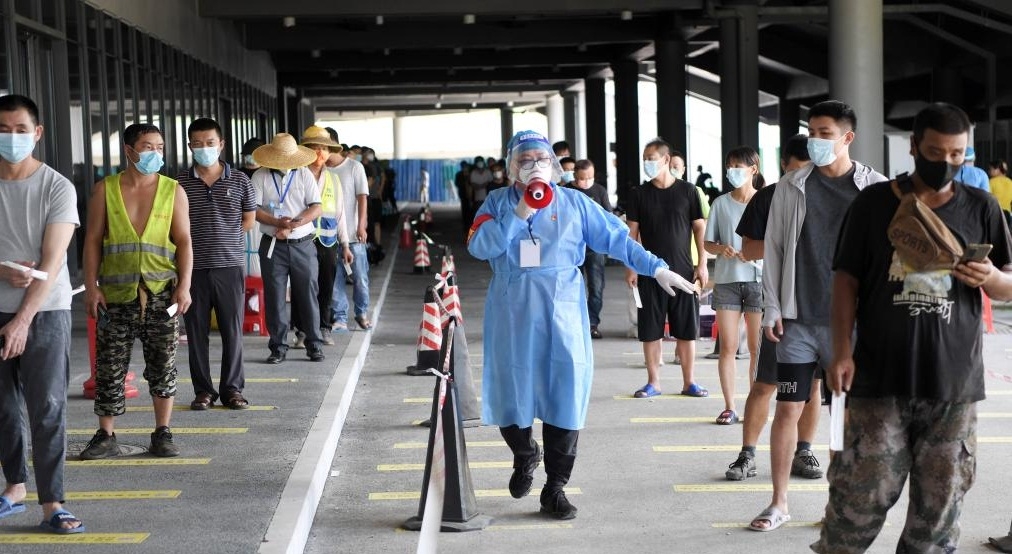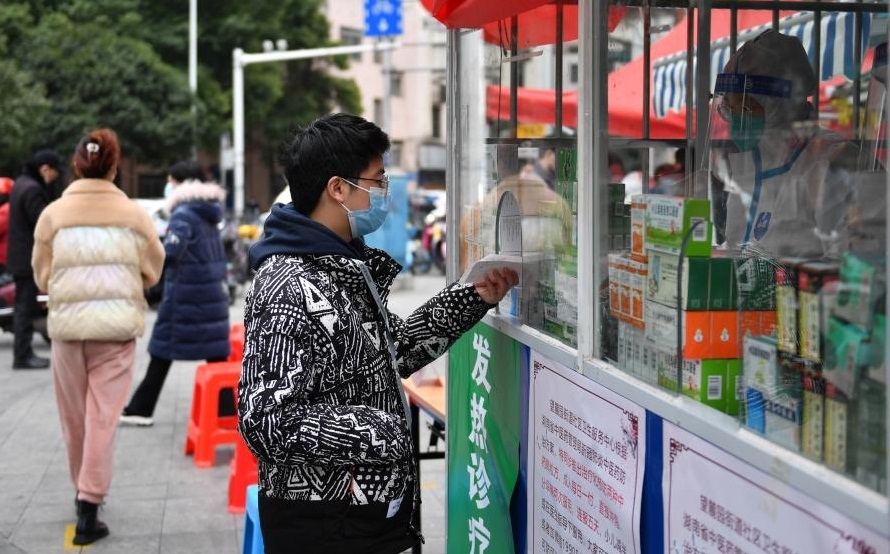Many in China blamed the excesses by the government during the Zero Covid programme for deteriorating mental health conditions. The youth was particularly affected due to the loss of jobs, writes Dr Rajeev Kumar Sharma
The ongoing demographic crisis in China due to the fast-ageing population is set to become more severe in the near future. Almost a quarter of youth are reported to be suffering from mental depression in China. To make matters worse, such cases are also rising among adolescents as well. While the communist government in Beijing may be seen harping on a prosperous future, the young Chinese feel pessimistic about their own future. This does not spell good news for the country’s economic and social fortunes.
There are several reasons for the mental problems among youth. The rising level of unemployment is a major one. “Plenty of young Chinese people are now having psychological problems due to the bad economy, but many don’t show it outwardly. They choose to ‘lie flat’ or become cynical instead,” said a software development professional from Beijing. Notably, the viewership of mental-health-related videos on Bilibili, China’s equivalent of YouTube, grew by 83 percent in 2023 and the searches for solutions to anxiety, depression and pressure by 224 percent.
Under Xi Jinping, China’s economy has become stagnant while the repression of people has reportedly grown. The economic slowdown especially after the Covid pandemic has caused disillusion among the Chinese youth. Mei, a young former investment banker, lost her voice due to stress after she was sacked. “I think many young Chinese people are now becoming disillusioned — they are not getting what they were promised by the country in their youth,” she said.

Nancy Qian, professor of economics at Northwestern University, said the reasons for the youth depression are beyond the increasing joblessness and economic sluggishness. “The rise of youth depression has been decades in the making, and owes much to China’s rigid education system, past fertility policies and tight migration restrictions,” she said.
The controversial ‘996’ work culture is also to be blamed for the rising mental distress among the Chinese youth. While this was liked by employers and those seeking to become billionaires, the general population who want to spend time with family and friends or pursue some hobbies found it frustrating.
Young people in China pointed to the political repression, economic woes and workplace discrimination as well. Shanghai resident Zhao Di is one such individual who is facing mental health difficulties. “Not a single person I know has told me they’re happy. People of our generation living [in today’s China] are trapped in a general state of depression,” she said.

There has been a surge in suicides committed by people with depression in China. This includes children of age between 5 and 14. Even a successful singer named Coco Lee killed herself as she suffered from depression. It sparked mental health discussion on Chinese social media. There has been a surge in demand for mental health professionals. However, the Beijing government regards it as an imported form of Western-influenced bourgeois decadence.
Many in China blamed the excesses by the government during the Zero Covid programme for deteriorating mental health conditions. The youth was particularly affected due to the loss of jobs. “Mental health issues occurred during the pandemic. Trouble with people’s income, trouble to find a job – people’s anxiety has always been there, and is even increasing,” said Dr Jia Miao, assistant professor of sociology at Shanghai New York University.

Things are getting worse for teenagers in China since they do not seek help for mental health problems, unlike adults, said Unicef. “Children in China are facing increasing stress and competition at school, high parental expectations, and rapidly changing socio-economic conditions. Mental health conditions are a major burden of disease for adolescents in China,” it said. Institute of Psychology at the Chinese Academy of Sciences revealed that about 25 percent of children in the country showed depressive symptoms while 7.4 percent were at severe risk of getting major depression.
Xiang Biao, Director at Germany-based Max Planck Institute for Social Anthropology, said Chinese society struggled to keep up with the economic progress, leaving the youth to cope with mental stress that was not witnessed in the past 40 years. “The previous pressure that stemmed from hopes for work, and the current pressure arising from a fear of being eliminated from the competition due to a lack of work opportunities,” he said.
ALSO READ: China grapples with economic effects of ageing society













